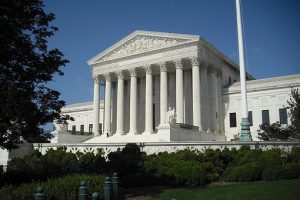Appellate Division Issues First Published Opinion on the New Jersey Pregnant Workers Fairness Act
New Jersey’s Law Against Discrimination and the Pregnant Workers Fairness Act
New Jersey employment law has long been in the forefront of protecting employees’ civil rights  and prohibiting discrimination in the workplace. While Congress did not pass Title VII until 1964, the Legislature passed the New Jersey Law Against Discrimination in 1945. Since then the LAD has been expanded to protect more types of workers from discrimination because of who they are and give them a wider array of rights and protections. Most recently, in 2014 the Legislature passed the New Jersey Pregnant Workers Fairness Act, again which amended the New Jersey Law Against Discrimination, this time to prohibit discrimination against pregnant workers, and to require reasonable accommodation for physical arising from pregnancy, recovery from childbirth, and breastfeeding. It prohibited employers from penalizing employees for being pregnant.
and prohibiting discrimination in the workplace. While Congress did not pass Title VII until 1964, the Legislature passed the New Jersey Law Against Discrimination in 1945. Since then the LAD has been expanded to protect more types of workers from discrimination because of who they are and give them a wider array of rights and protections. Most recently, in 2014 the Legislature passed the New Jersey Pregnant Workers Fairness Act, again which amended the New Jersey Law Against Discrimination, this time to prohibit discrimination against pregnant workers, and to require reasonable accommodation for physical arising from pregnancy, recovery from childbirth, and breastfeeding. It prohibited employers from penalizing employees for being pregnant.
The Appellate Division of New Jersey’s Superior Court recently issued the first published opinion interpreting the New Jersey Pregnant Workers Fairness Act in the case of Kathleen J. Delanoy v. Township of Ocean.
 New Jersey Lawyers Blog
New Jersey Lawyers Blog




 Small business and contractors often hire independent contractors rather than employees for certain projects and services. Generally, this allows the business to avoid responsibility and expense related to withholding and paying taxes, and obtaining insurance for those workers. However, case law in New Jersey over the years has slowly been narrowing the definition of who may qualify as an independent contractor.
Small business and contractors often hire independent contractors rather than employees for certain projects and services. Generally, this allows the business to avoid responsibility and expense related to withholding and paying taxes, and obtaining insurance for those workers. However, case law in New Jersey over the years has slowly been narrowing the definition of who may qualify as an independent contractor.

 owner’s share of the business which the remaining owners must pay to buy out his share. This can be difficult even if the departure itself is on good terms. The method and amount of the valuation can cause vicious disputes even among friendly partners. The Chancery Division of the Superior Court of New Jersey in Bergen County recently issued a published decision on this problem in the context of a limited liability company.
owner’s share of the business which the remaining owners must pay to buy out his share. This can be difficult even if the departure itself is on good terms. The method and amount of the valuation can cause vicious disputes even among friendly partners. The Chancery Division of the Superior Court of New Jersey in Bergen County recently issued a published decision on this problem in the context of a limited liability company.
